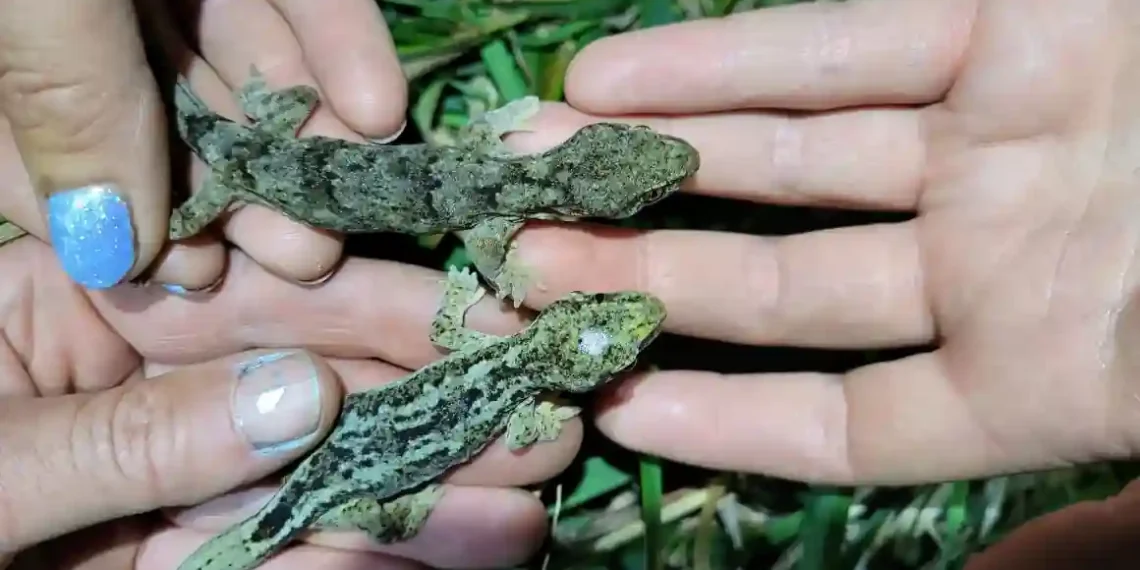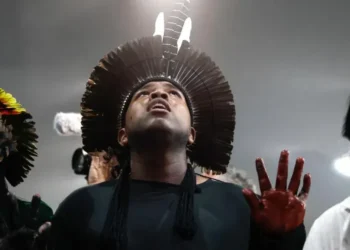Could These 60-Year-Old Geckos Be the Oldest in the World?
At 64 and 60 years old, Antoinette and Brucie-Baby may not look as youthful as they once did. Their bodies are thin, their skin a little looser, yet their eyes still shine with life. But these are no ordinary seniors—they are geckos, believed to be the oldest on record, found on a remote island in New Zealand.
The two Waitaha geckos were discovered on Motunau Island by a research team led by reptile expert Marieke Lettink. The finding was both exciting and humbling. “These animals are older than us and still out there doing their thing,” Lettink said, marveling at their resilience.
Their discovery came during a routine five-yearly survey of the island, where hundreds of geckos are typically caught, identified, and recorded. Each time, the team wonders just how long these creatures can live, as the oldest gecko found always seems to surpass expectations.
The secret to their age lies in a decades-old practice. In the 1960s, conservationist Tony Whitaker began marking geckos using a technique called toe clipping, where each gecko was given a unique pattern for identification. While no longer in use today, these markings allowed Lettink and her team to confirm that Antoinette and Brucie-Baby were first recorded over 60 years ago.
“It was quite a poignant moment,” Lettink shared. “It made me think of Tony, who started the work.”
Most geckos around the world live for about a decade, making these two geckos an extraordinary exception. Their longevity even surpasses some of the longest-living lizards, including iguanas and Komodo dragons.
“And yet, here we have this humble, drab brown gecko that’s not famous at all, outliving them all,” Lettink said.
The geckos’ remarkable lifespan is likely due to their home on Motunau Island, which is free from introduced predators. Unlike mainland New Zealand, where native wildlife has been decimated by invasive species, this island provides a safe haven.
The success of reptile populations in predator-free environments has inspired conservationists to establish more protected sanctuaries across the country. However, balancing ecosystems is complex. Without predators, mouse populations can boom, posing new threats to geckos. This has led to the development of specialized lizard-only sanctuaries to ensure their survival.
Other factors may also contribute to their long life, including New Zealand’s cool climate and the stable island habitat, said Kaitlyn Leeds, a biodiversity ranger with the Department of Conservation.
The team had previously encountered Antoinette a decade ago and assumed it would be the last time. But to their surprise, she was still thriving. “And here, 10 years later, they look no different—they’re still going,” Lettink said.
Now, the researchers are eagerly looking ahead to their next survey in five years, hopeful that even older geckos may be waiting to be discovered. “That would be really exciting,” Lettink added.
Antoinette and Brucie-Baby’s story is not just one of survival but a testament to the importance of conservation efforts. As long as their habitat remains protected, who knows how much longer these ancient geckos—and perhaps others like them—will continue to defy the odds.
This article was rewritten by JournosNews.com based on verified reporting from trusted sources. The content has been independently reviewed, fact-checked, and edited for accuracy, neutrality, tone, and global readability in accordance with Google News and AdSense standards.
All opinions, quotes, or statements from contributors, experts, or sourced organizations do not necessarily reflect the views of JournosNews.com. JournosNews.com maintains full editorial independence from any external funders, sponsors, or organizations.
Stay informed with JournosNews.com — your trusted source for verified global reporting and in-depth analysis. Follow us on Google News, BlueSky, and X for real-time updates.














